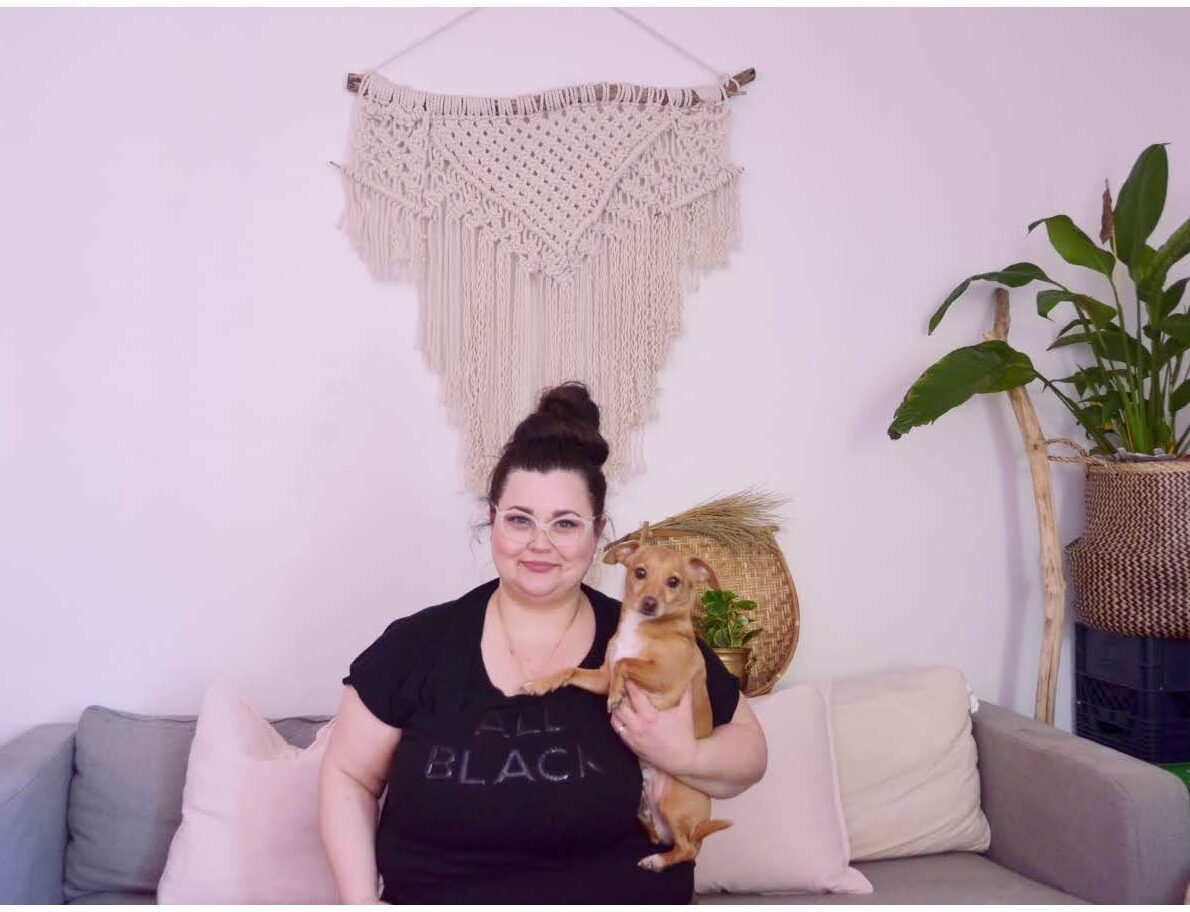Three questions with…Lina!
Our lab is growing! In our Three Questions series, we’re profiling each of our members and the amazing work they’re doing.
Today, we’re highlighting Lina Marie Harper: a master’s student in Information Science at the University of Ottawa, a researcher at the ScholCommLab, and the proud owner of a “chiweenie” (part Dachshund, part Chihuahua).
In this post, she tells us about the joys of open data, graduate school, true crime, and more.

Q#1 What are you working on at the lab?
I’m working on a few things for the lab. But one of the highlights, so far, has been the Research Data Management Plan (RDMP) for the Meaningful Data Counts (MDC) project, which I worked on over the summer in a team of four. I’d been contributing to the lab’s MDC project for a while by then, using mixed social sciences research methods to explore the role that datasets play in scholarly communication. As part of that work, we were commissioned by the Portage Network to craft an RDMP exemplar that describes how data is handled in our project. As both of the project’s Principal Investigators practice open science and scholarship, the final plan puts an emphasis on data sharing and reuse.
The other highlight, for sure, has been writing a graduate-level thesis! It’s exciting to take on this type of project because it’s like the culmination of all the things that I’ve been analyzing and dissecting for the past two years in the Information Studies Masters program. It’s going to be the longest written piece of work I’ve ever done by far, and I am so proud to be working on it. I am the first person in my family with an (almost finished) MA (mom’s side) and the first person with an undergraduate degree on my dad’s side (I have a BA in Women’s Studies and Communications from Concordia). My master’s research will hopefully help with the qualitative aspect of the MDC project, as I’ll be looking at researchers’ motivations to reuse data in the social sciences and humanities sector.
I am so proud to be working on [my thesis]. I am the first person in my family with an (almost finished) MA
Lina Harper
Q#2 Tell us about a recent paper, presentation, or project you’re proud of.
In May, I was invited to share my working research for the 26th Annual SPRU PhD Forum 2020, a platform for PhD researchers to connect, share, and learn from each other.
As a guest for Information Technologies: Practices, Imaginaries, and Futures, a panel with the ST Global Consortium, I presented a talk called “Information Scientists: Data curation and the evolving role of research librarians.” The event was live streamed for conference participants in Sussex, UK, so I had to wake up super early to connect—plus, I was beaucoup nervous—but it went really well. I learned that practicing with your Ottawa Lab friends makes perfect (thanks, Stefanie, Alyssa, Leigh-Ann, and Erica for being my sounding board!)
I also have two other projects I want to shamelessly brag about. The first is a preprint called 10 Women of Digital Humanities that I posted last spring. I completed the research in the winter of 2020, in a class called Linked Open Data in the Humanities taught by Canada Research Chair in Digital Humanities, Constance Crompton. The project was about linked open data — I tracked the digital object identifiers and tweets of 10 female DH scholars, randomly chosen from this list. The coolest part was adding metadata and linking items to Wikidata pages.
Finally, I want to briefly mention Searching as Information Literacy—an open educational resource lesson plan and podcast, an online educational resource we just published on Zenodo. The resource unpacks the frame “Searching As Strategic Exploration” from ACRL’s Framework for Information Literacy, six concepts that organize ways to teach post-secondary students about selecting and appraising credible information and research. It includes a podcast, blog, and learning exercise by yours truly, Leigh-Ann Butler, and Andrea Lobel.
Q#3 What’s the best (or worst) piece of advice you’ve ever received?
“Stay sexy and don’t get murdered.” This is one of my mantras. It’s a piece of advice from a true crime podcast by two comedians, Karen Kilgariff and Georgia Hardstark. The show has brought together a community of women (online) with one thing in common: navigating this world as a woman (or woman-identified person) can be dangerous.
In a world of perpetual violence against women, this is real world advice that asks, “if you have to choose between being polite or staying safe and fighting back — forget politeness.”